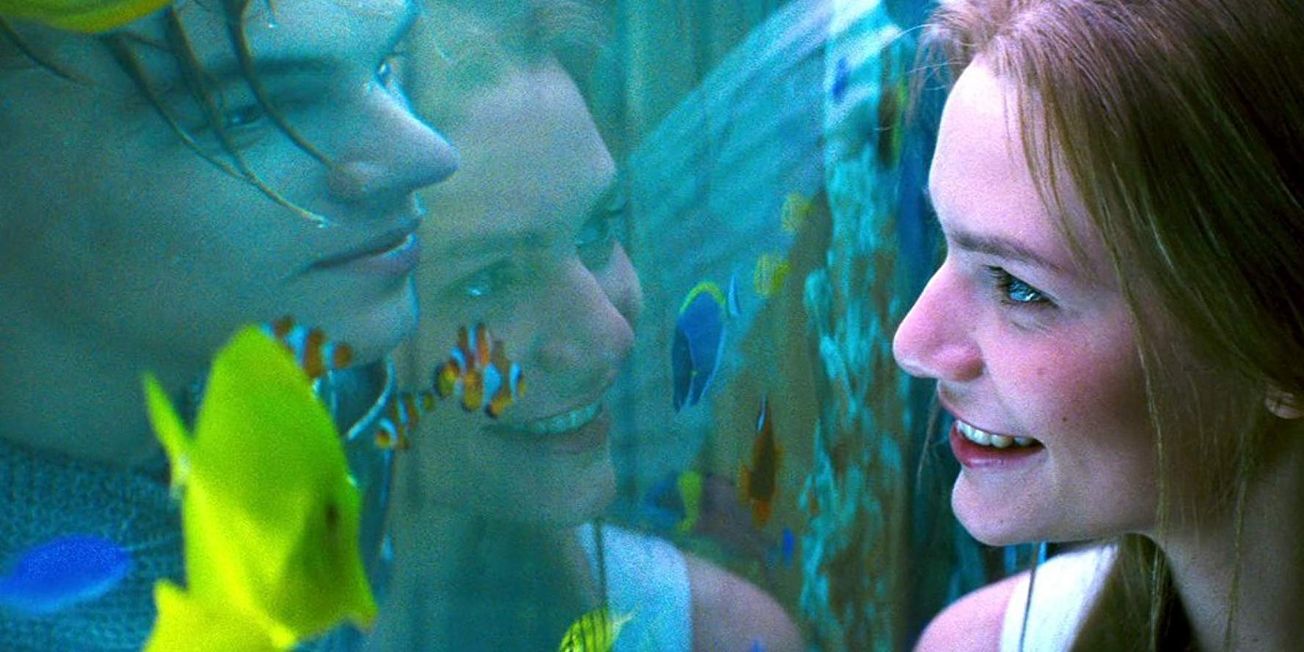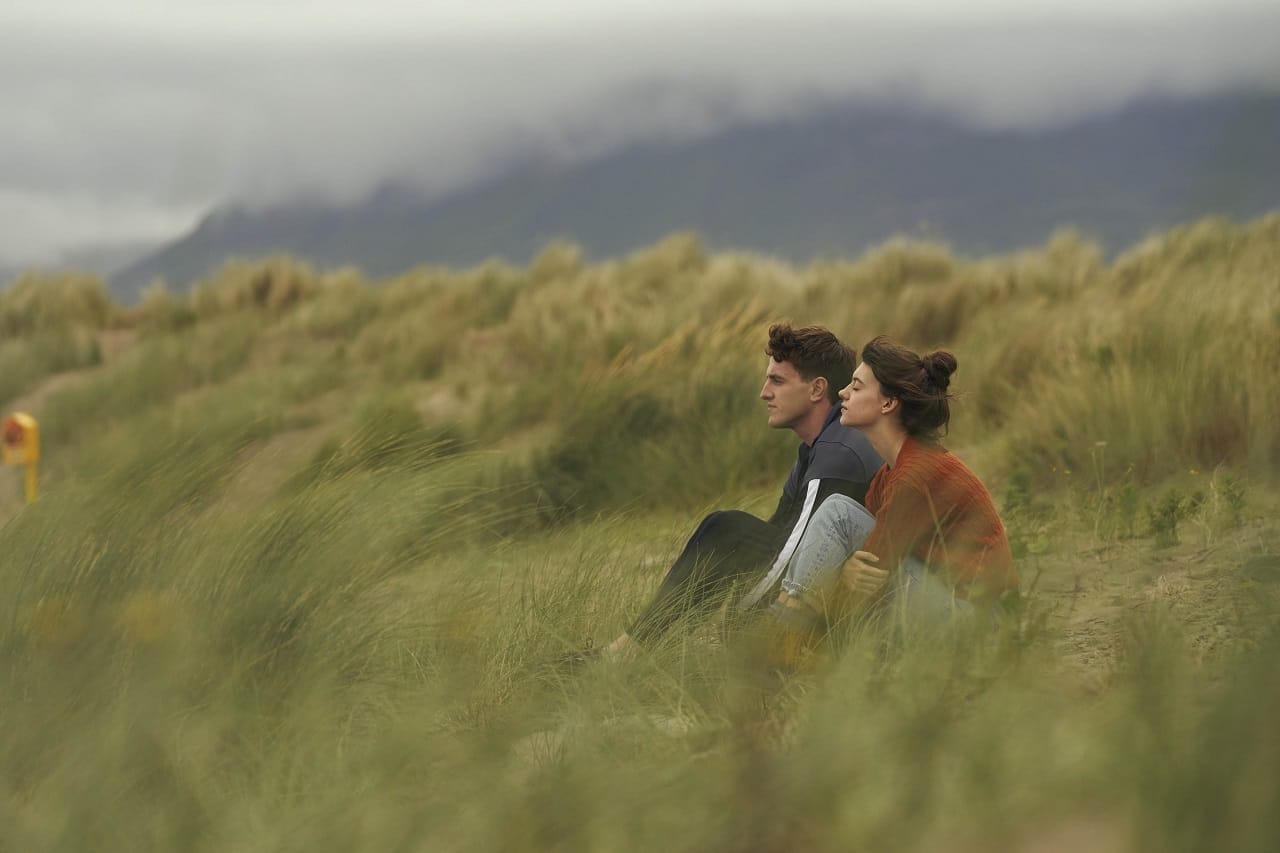By Gruff Kennedy, 3rd Year, English
There are many lists about films that flopped as adaptations – but what about bad, or somehow unfaithful, adaptations that still made good films?
Romeo + Juliet (1996)
Full disclaimer: I love this film, to that extent that I can happily say, with only a tiny hint of embarrassment, Leonardo DiCaprio’s Romeo played a major part in my coming out as bisexual in Year 10.
As a notoriously pretentious English student, however, it would probably be more appropriate for me to hate it. That punky late-90s plus sign, in place of Shakespeare’s ‘and’, indicates the main problem with Luhrmann’s famous adaptation of the classic play: it’s cheesy as hell.
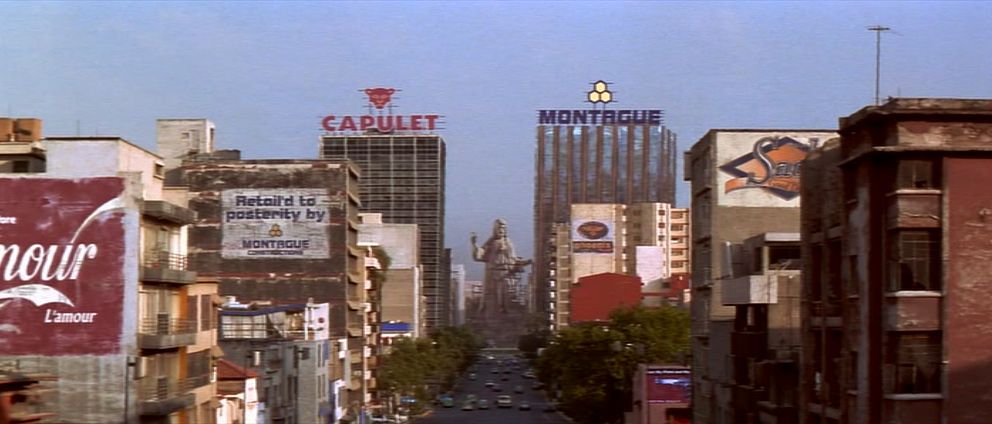
Its Venice Beach aesthetic – loud designer wear, awful slicked-back haircuts and neon crosses – is perfectly uncanny when you contrast it with Luhrmann’s bold decision to preserve, word-for-word, Shakespeare’s Elizabethan dialogue.
Campy touches, like embellishing the word ‘BROADSWORD’ onto everyone’s guns in block capitals, or employing choice tracks from the likes of the Butthole Surfers and Garbage during dramatic scenes, seem the perfect way to turn one of the most masterful tragedies ever written into an utter farce.
In tribute to another quintessentially 90s piece of pop culture, truly this is the Poochie of Shakespeare adaptations. And yet, somehow, this film’s flaws as an adaptation of a tragedy fall by the wayside. This film is entertaining, captivating and just plain stupid cheesy fun.
Campy touches seem the perfect way to turn one of the most masterful tragedies ever written into an utter farce
Stalker (1979)
Russian director Andrei Tarkovsky’s adaptation of the Strugatsky brothers’ legendary 1972 sci-fi novel, Roadside Picnic, may not actually qualify for this list, considering that they wrote the screenplay.
However, even Tarkovsky himself has gone on record saying that there are only very basic links to the novel; the desperate Stalkers and the inscrutable Zone, throwing nuts and bolts to detect anomalies, and so on.

The novel’s title clues the reader in on what the Strugatsky brothers have depicted the Zone and its myriad treasures as; the detritus from an extraterrestrial picnic, as mysterious to us as our rubbish would be to ants.
Tarkovsky, in contrast, skews away from this bleak existentialism, and sees the Zone as an exercise in the classical Aristotelian unities of action, time and place, and a useful plot device with which to draw out the personalities of his characters.
Huge adaptational differences aside, Tarkovsky’s film is a classic of Russian arthouse cinema, and a drama with true depth and intrigue.
Annihilation (2018)
Perhaps a tenuous choice considering that Alex Garland’s trippy sci-fi horror was given carte blanche by the titular novel’s writer Jeff VanderMeer, but this feels like a film that has been held back by its adaptation status.
Being frank, it owes more to H.P. Lovecraft’s The Colour Out of Space (1927) than it does VanderMeer’s work, and the most accurate comparison has to be Roadside Picnic – which has apparently proved to be a very difficult novel to adapt.
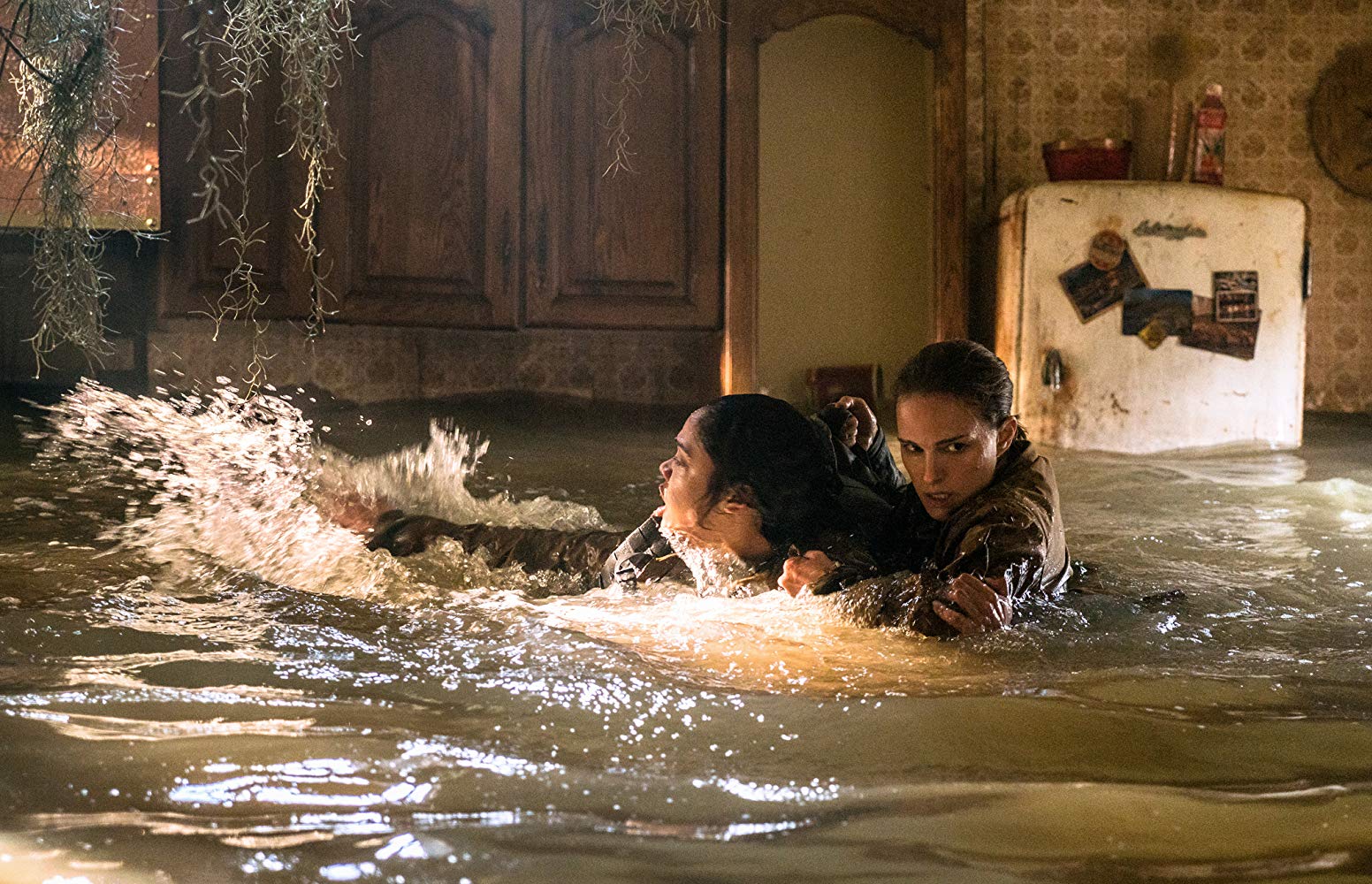
The first act of Garland’s film is classic blockbuster sci-fi: there’s a mystery, a team of - refreshingly, entirely female - experts sent in to tackle it, and conflict and drama galore. VanderMeer’s ‘Shimmer’, however, borrowing heavily from the Strugatsky brothers’ ‘Zone’- begins to unravel their group, both metaphorically and literally.
They are brutally killed off or simply fade away into something unknowable. The final act borrows heavily from classic existentialist arthouse cinema, becoming a tense exploration of the limits of identity.
Though Garland’s film was undoubtedly radical, both thematically and cinematically, for a sci-fi blockbuster, it’s impossible not to wonder quite how far he could have gone had he not been beholden to a novel that, in the end, his film barely resembled.
There's always more to uncover. Annihilation was one of the Top Trending Thriller/Horror Movies of 2018 on Google. #YearInSearch pic.twitter.com/k1xGDiSXzy
— Annihilation (@AnnihilationMov) December 14, 2018
The Shining (1980)
This list just wouldn’t have been complete without The Shining. Kubrick’s take on Stephen King’s classic horror is widely viewed as one of the greatest horror films of all time, but it has come in for some scathing verdicts from King himself.
He found issues with the casting of Jack Nicholson – originally suggesting Jon Voight – with Shelley Duvall’s performance, the apparent downplaying of the novel’s supernatural elements, and the film’s lack of a definite, moral ending.
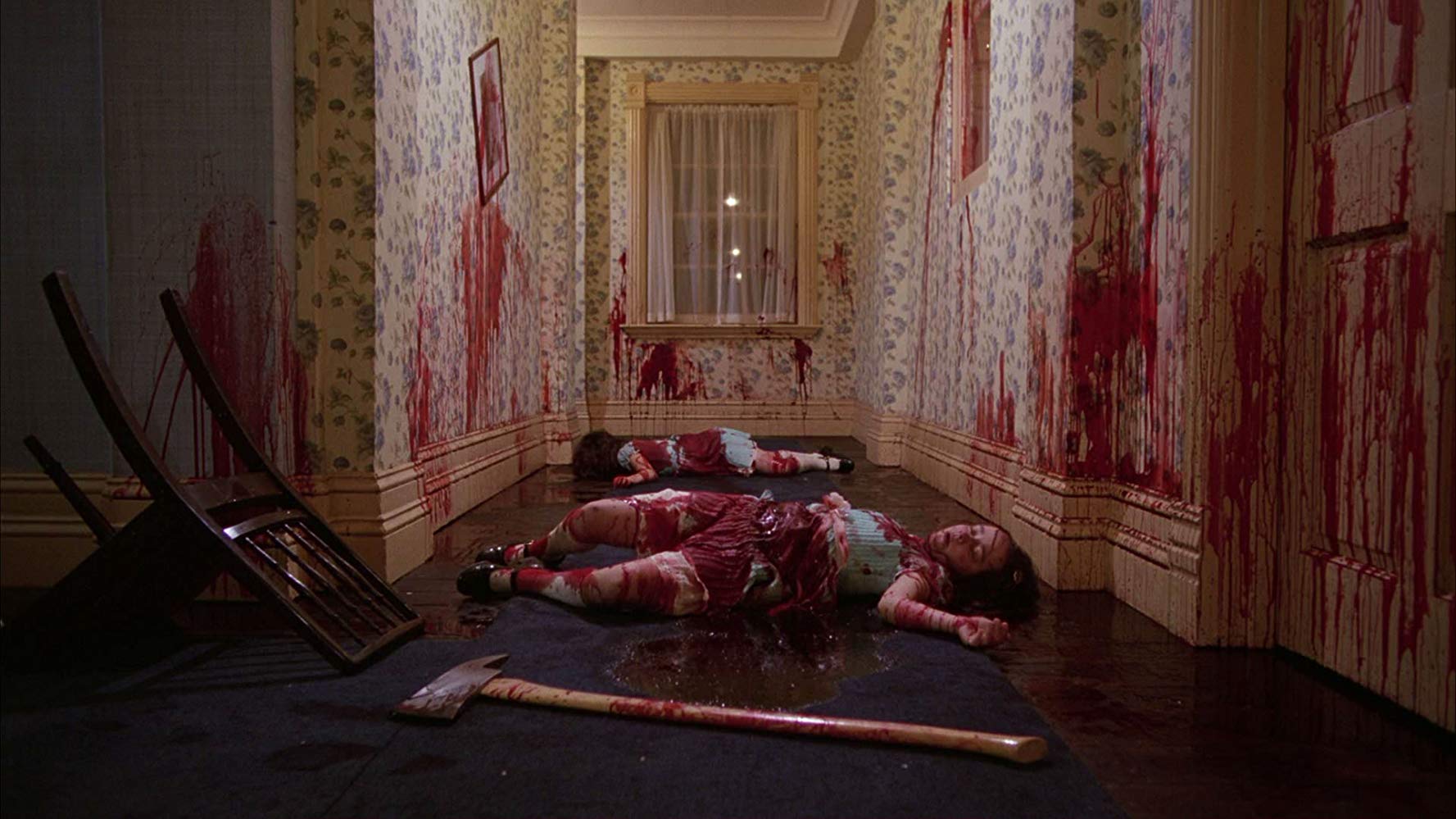
He even criticised its filming location, insisting that it should have been shot at the Stanley Hotel, Estes Park, CA, which was the actual inspiration for the Overlook Hotel. Kubrick, however, considered his changes necessary and, in some cases, unavoidable; the Stanley Hotel did not have enough snow to mimic the Overlook, nor did it have electricity.
Kubrick’s version has become The Shining: its shots are instantly iconic, its soundtrack resounds even after the credits have rolled, and its masterful pacing lends it a persistent sense of dread. King is an excellent horror writer, and while his objections are perhaps justified, they fall a little flat.
Stephen King found issues with the film’s lack of a definite, moral ending
Blade Runner (1982)
It is not at all surprising that most of the films I’ve chosen have been based on science fiction and horror stories. A good deal of novels in the two genres are ponderous, weighty and tend to lean too heavily towards existentialism to make for palatable blockbusters.
Blade Runner, famously so extensively recut that seven distinct versions exist, is a phenomenal example of the difficulties of going from page to screen. Just consider Philip K. Dick’s original title! Do Androids Dream of Electric Sheep would never fly for an American blockbuster. Blade Runner is an excellent title, but it was actually cribbed from William Burroughs’ 1979 novel of the same name.
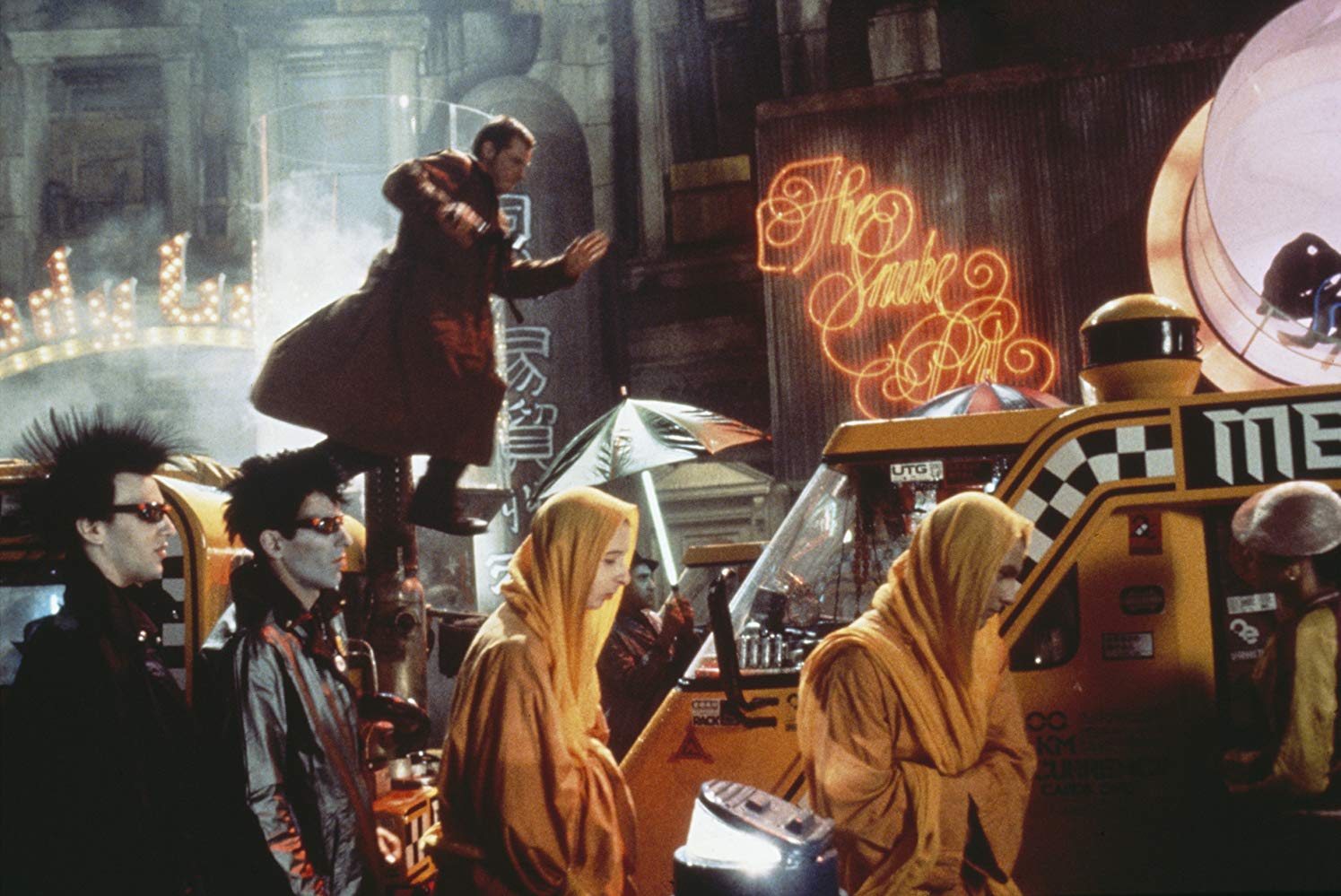
Sci-fi master Ridley Scott pulls off an incredible balancing act, creating a tightly-wound mix of action, personal drama, romance and existentialist philosophy that somehow never bogs itself down.
However, Scott did away with many of the novel’s more interesting plot devices; mood organs, Mercerism, and J.R. Isidore’s mental state come to mind, and the final act of compassion shown by Rutger Hauer’s Roy Batty would never have been replicated by the novel’s psychopathic character. Therefore, masterful as it is, his film can only really be considered a ‘take’ on Dick’s novel – not an adaptation.
Featured: IMDb / Twentieth Century Fox
Which of these famous films is the least faithful to their literary source material?

